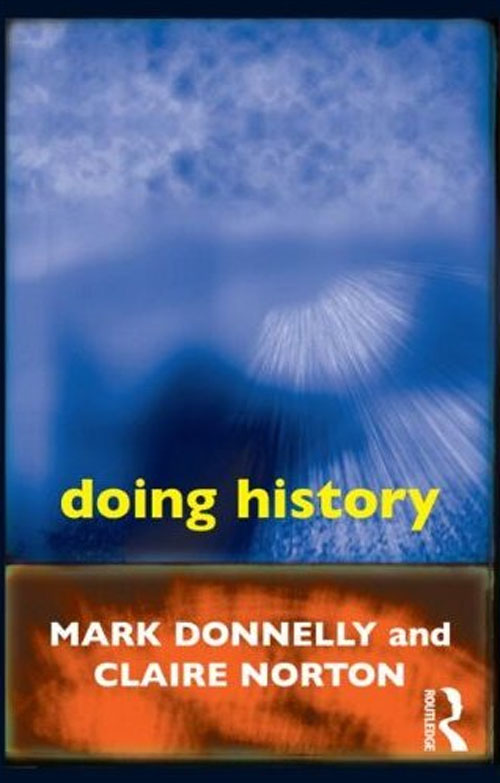Doing History
Book Review

Doing History by Mark Donnelly and Claire Norton - (Routledge), 2011 237pp., £12.99, paper, ISBN 978-0-415-56577-6
Recently there appears to have been a proliferation of ‘short and accessible' studies of the nature of history, how to study it and the best ways of communicating it to others in essay, dissertation, article or book. This reflects the dramatic changes in History as an academic discipline over the past two decades as it has become much more exciting and varied because of ideas from other disciplines, the influence of postmodernism and historians' incorporation of their own theoretical reflections into their work. You cannot get away from postmodernism in studying history today and it has undoubtedly had an emancipatory effect on the subject broadening its agendas and approaches and challenging the conservative status quo of the discipline but it has its practical limits as far as the study of history is concerned. The way history is studied at university level can vary greatly from history in schools (though in the best History departments it does not) or as represented in the media. Doing History seeks to bridge that gap and it largely succeeds in doing so though, as the authors admit, the distinction between traditional and postmodern history is ‘overly sharp' hiding the subtle character of both stances. Aimed at undergraduate and postgraduate students of history, this is the ideal introduction to studying history as an academic subject at university and would be of value to sixth form students considering taking the subject beyond Advanced Level.
Doing History is divided into four parts: What is history? What do historians do? Whose history? The final part considers History today and the future of the subject. It presents the ideas and debates that shape how we do history today, covering arguments about the nature of historical knowledge and the function of historical writing, whether we can really ever know what happened in the past, what sources historians depend on, and whether historians' versions of history have more value than popular histories. This practical and accessible introduction to the discipline presents students to these key discussions, familiarising them with the important terms and issues, equipping them with the necessary vocabulary and encouraging them to think about, and engage with, these questions. Clearly structured and eminently accessible, it is a valuable volume for all students embarking on the study of history. Yet, in many respects, how historians ‘do' history has not fundamentally changed: we still identify a subject, examine the available sources, consider what other historians think, develop hypotheses from those sources and then write up our conclusions. These are not definitive but are of reflection of our present. The best history has always been tentative, personal and literary in character and it still is.
This resource is FREE to all registered users of the website
If you are not already registered you can sign up for FREE Basic Website Access or Join the HA to access this content.

